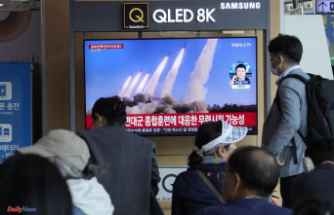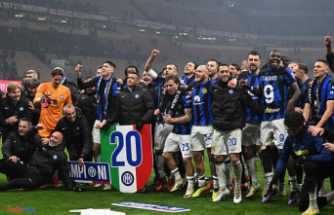How much did James Bond drink per day? Why is Rudolph's reindeer nose? How long is a box of chocolates in the room of a hospital? There are existential questions that we have all ever done (or not) to which some of the studies collected in previous Christmas numbers of the British Medical Journal have been answered. The prestigious British scientific journal has become tradition to make us laugh at these dates with a selection of research articles that, by cracked and absurdity that appear, have gone through the usual process of peer review and are real scientific documents.
This year, the one that takes the palm in terms of originality is the titled the behavior of the superheroes shed light on how to stay healthy in the elderly. Its author, Ruth E. Hubbard, professor of Geriatric Medicine of the University of Queensland (Australia), notes that, even for the protagonists of Marvel films, regular physical activity and strong social ties are important for healthy aging.
To reach such a conclusion, Hubbard and his team reviewed 24 Movies from the Marvel factory, from Iron Man (2008) to the Black Widow (2021). Assuming that the superheroes age, except for thor - whose origin is millennia back-, those responsible for the study analyzed how most of them are frequently exercised (fights against the supervillanos burn more fat than a class of zumba) and present a high degree of cohesion and social connection, both associated with a lower risk of dementia.
They also valued the optimistic attitude of the majority and, except for exceptions, their abstinence with alcohol and tobacco, crucial elements to have a longer and healthier life. As for its risk factors, there is not such good news: repeated exposure to strong noises, atmospheric pollution and the multiple cranial traumatisms of its battles Campals against the bad ones cause superheroes to have a higher risk of suffering from dementia, as well as of physical injuries that can cause disability. Can you imagine Hulk in a wheelchair? Neither do I.
The authors are allowed even recommending where they should direct their efforts, beyond keeping mankind safely, kicking the ass to Howans or developing technology to facilitate space travel. Spiderman, Black Panther and company should lend, according to them, more attention to other causes, such as providing quality health and social care to the growing number of aging population. "This would allow people from all over the multiverse, including superheroes, to experience a high quality of life in the elderly," conclude with some Sarna.
But there is much more than scratching on the Christmas number of BMJ. Another outstanding studies is the one that aims to explain why neurosurgeons and aeronautical engineers are not smarter than the common mortals. The study focuses on checking if two very common expressions in English, "It's Not Rocket Science" and "It's Not Brain Surgery" (it's not neurosurgery), which are used to indicate that something is very simple or Easy, they are justified. Here, the fun is the method: an intelligence test with which it compared the skills of cognition, memory, attention and processing capacity of emotions between 329 aerospace engineers, 72 neurosurgeons and another 18,257 participants with different professions and origins.
Paper's conclusion is that neurosurgeon showed better resolution capabilities of semantic problems, while aerospace engineers highlighted in mental handling capabilities and attention. Even so, in general terms, the results indicate that the prestige of both professions does not imply that they are smarter than those who are dedicated to nursing, plumbing or, ahem, journalism.
The last of the outstanding studies has a very current dimension and a more serious tone, since it explores how a hip hop song reduced the number of suicides in the United States. The theme in question is 1-800-273-8255, of the rapper Logic, which used the telephone number of the National Suicide Prevention Lifeline to give title to a hit in which Alessia Face and Khalid also collaborated. Thomas Niederkrotenthaler, mental health expert at Vienna Medical University, evaluated changes in the amount of daily calls receiving the US suicide prevention line before and after the launch of the song, of the MTV Video Music Awards 2017 and of the Grammy 2018 (where it was awarded). In tenor of the results, there was an increase of 6.9% of the calls, while the suicides were reduced in the same period by 5.5%.
"Logic's song probably represents the most extensive and sustained suicide prevention message directly connected to a history of hope and recovery anywhere to date and, therefore, is a serendypical event for research", can be read in the study. What comes to demonstrate, undersides Niederkrotenthaler, which media coverage is key when it comes to increasing or reducing the number of suicides, particularly for groups to which it is difficult to reach with traditional messages, such as adolescents.
Date Of Update: 07 January 2022, 13:59











